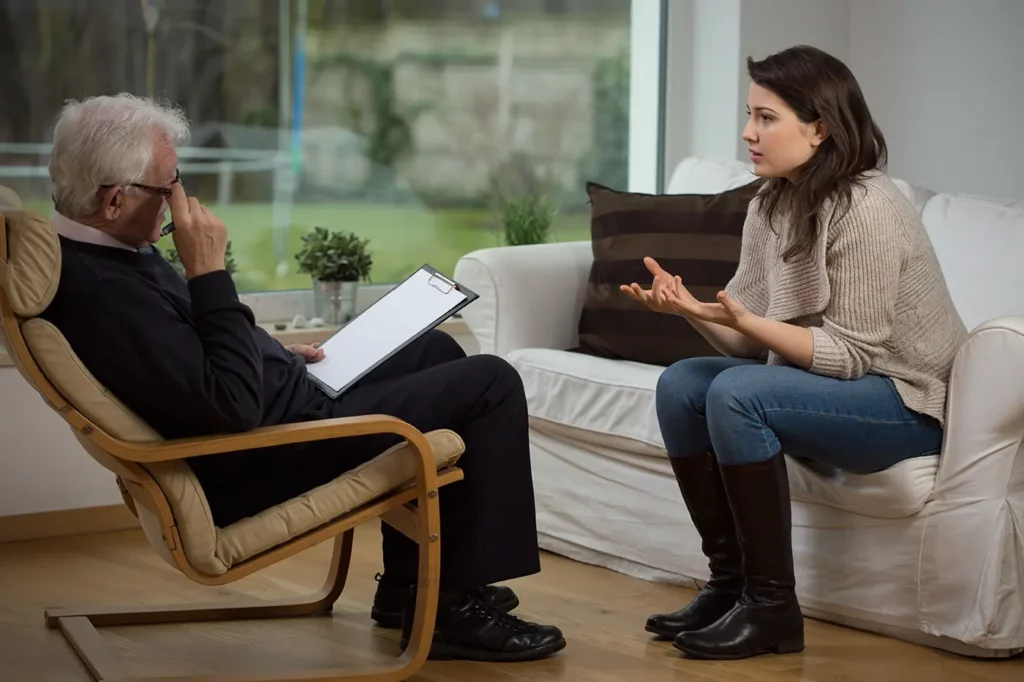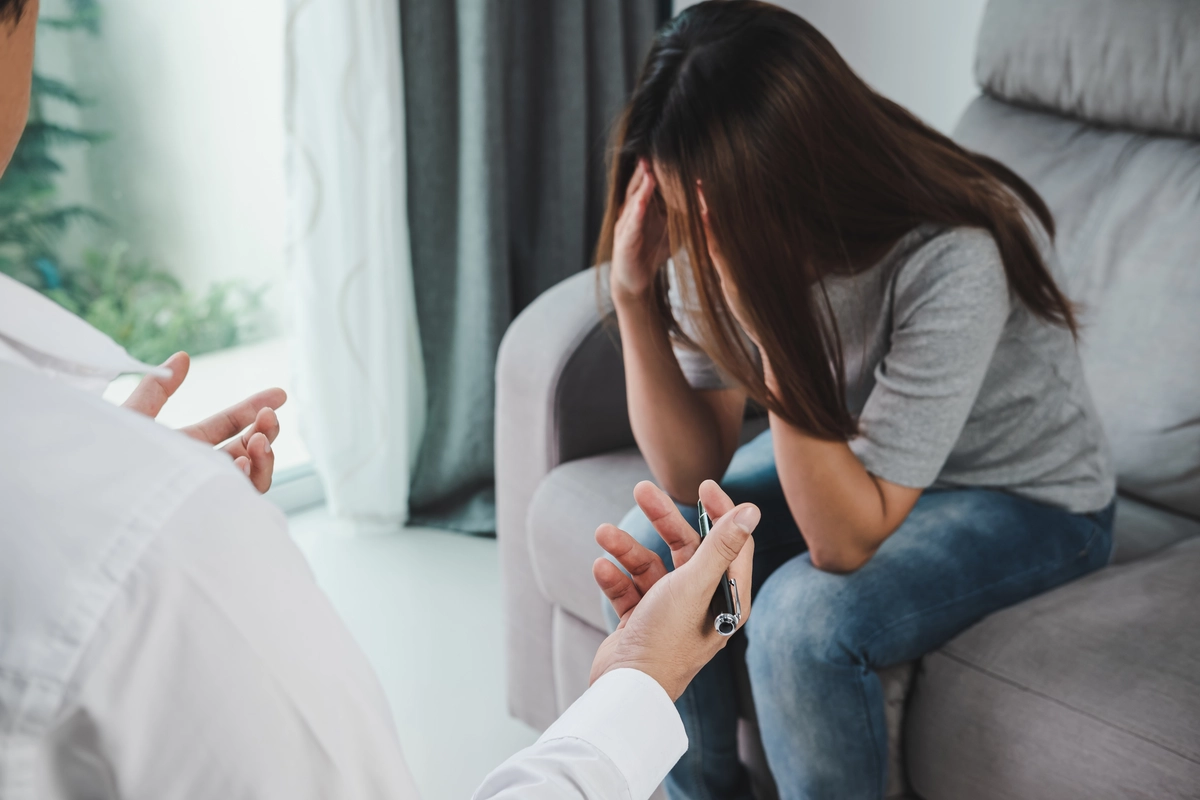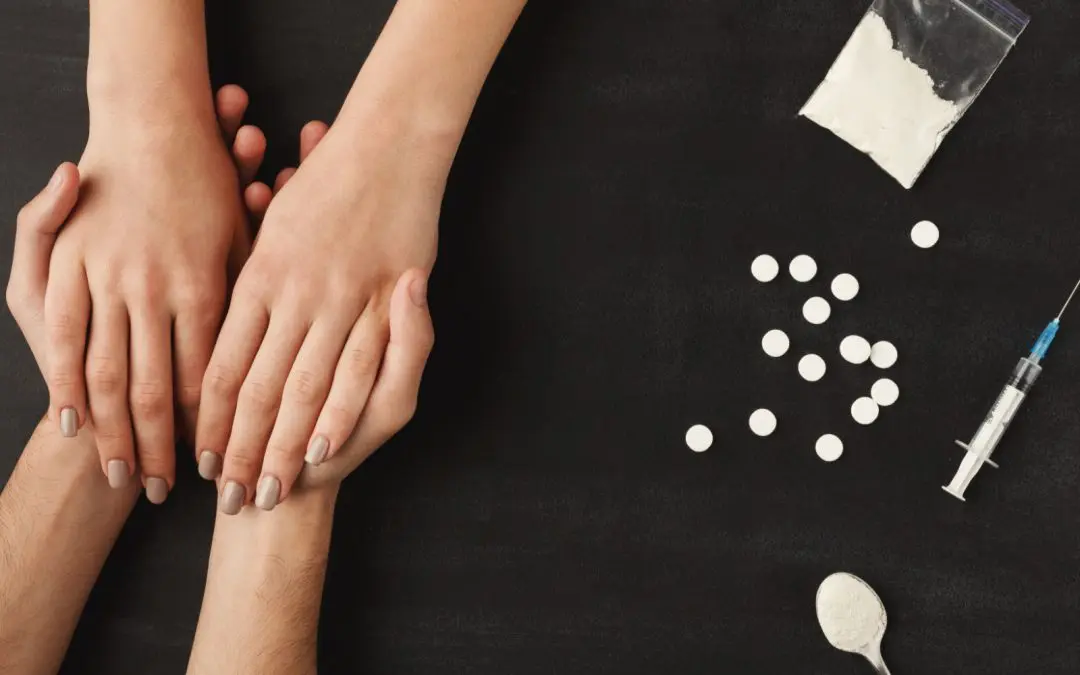24/7 Helpline:
(866) 899-221924/7 Helpline:
(866) 899-2219
Learn more about PTSD Rehab centers in San Luis
PTSD Rehab in Other Cities

Other Insurance Options

Amerigroup

Absolute Total Care

Providence

Kaiser Permanente

Access to Recovery (ATR) Voucher

BHS | Behavioral Health Systems

Evernorth

Horizon Healthcare Service

Sutter

AllWell

Private insurance

BlueCross

Medical Mutual of Ohio

Highmark

Optum

Aetna

GEHA

Premera

BlueShield

Optima

San Luis Valley Behavioral Health
San Luis Valley Behavioral Health is an outpatient facility that offers treatment for individuals fr...

Arizona Counseling and Treatment Services
Arizona Counseling and Treatment Services is a private rehab located in San Luis, Arizona. Arizona C...

Community Health Associates
Community Health Associates is a private rehab located in San Luis, Arizona. Community Health Associ...






Raphah Counseling Services
Raphah Counseling Services is a private rehab located in Yuma, Arizona. Raphah Counseling Services s...

Community Intervention Associates
Community Intervention Associates, located in Yuma, Arizona, provides behavioral health care service...

Crossroads Mission – Outpatient
Crossroads Mission – Outpatient is a private rehab located in Yuma, Arizona. Crossroads Mission – Ou...

Resilient Health – Yuma
PSA Art Awakening is a psycho-social rehabilitation program that offers outpatient services for indi...








Community Bridges
Community Bridges is a private rehab located in Yuma, Arizona. Community Bridges specializes in the ...

The Excel Group – Outpatient
The Excel Group – Outpatient is a private rehab located in Yuma, Arizona. The Excel Group – Outpatie...

Counseling and Treatment Services
Counseling and Treatment Services is a private rehab located in Yuma, Arizona. Counseling and Treatm...

Treatment Center
Treatment Center is a private rehab located in Yuma, Arizona. Treatment Center specializes in the tr...

AA – Alcoholics Anonymous
AA – Alcoholics Anonymous is a non-profit rehab located in Yuma, Arizona. AA – Alcoholics Anonymous ...

Heritage Counseling Services
Heritage Counseling Services is a private rehab located in Yuma, Arizona. Heritage Counseling Servic...

Living Free Recovery Home
Living Free Recovery Home is a private rehab located in Yuma, Arizona. Living Free Recovery Home spe...

Counseling and Treatment Services
Counseling and Treatment Services, located in Wellton, Arizona, offers alcohol and drug rehab servic...

New Hope of Arizona
New Hope of Arizona is a residential facility that offers treatment for individuals with a Mental He...

Counseling and Consulting – Outpatient
Counseling and Consulting – Outpatient is a private rehab located in Yuma, Arizona. Counseling and C...

Centennial Mental Health Center
Centennial Mental Health Center is a private rehab located in Yuma, Colorado. Centennial Mental Heal...





















































































